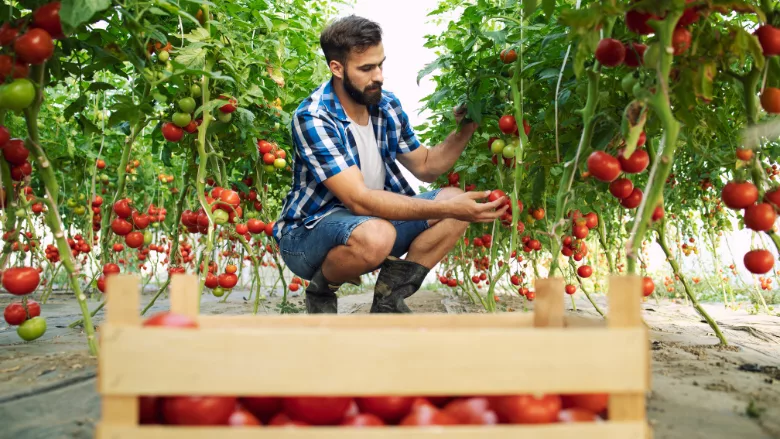Produce Growers Say Time, Money are Biggest Barriers to Adoption of On-Farm Food Safety Practices

Image credit: aleksandarlittlewolf via Freepik
A new study has highlighted the key challenges that produce growers face when implementing new, on-farm food safety practices, as well as motivators and needs for adoption.
In light of high-profile foodborne illness outbreaks that have occurred in the years since the Produce Safety Rule (PSR) under the U.S. Food and Drug Administration’s Food Safety Modernization Act (FDA’s FSMA) went into effect, the study’s researchers sought to understand how growers selling to U.S. markets have progressed in the implementation of new microbial risk reduction practices, as well as the challenges and barriers that remain to further adoption of new practices. To gain industry perspectives on the topic, a survey was sent to individuals who participated in Produce Safety Alliance produce safety training in the past. More than 700 responses were included in the dataset, almost half of which (47 percent) reported being covered by the PSR. Approximately one-third of respondents (33 percent) reported being exempt or excluded from the PSR.
Although the majority of respondents reported implementation of produce safety practices on their farms, seven percent reported not implementing risk reduction practices. However, the number of growers implementing such practices continues to increase in comparison to previous surveys. Not only did growers report economic and legal incentives for the adoption of new produce safety practices, but also expressed being motivated by a personal commitment to produce safety.
Larger operations and farms subject to third-party audits were more likely to implement produce safety practices. However, farms of all sizes reported financial and time constraints being a challenge to optimal implementation of microbial risk reduction strategies. Given more time and money, growers could more effectively educate themselves about requirements and new practices, afford necessary updates, and prioritize between numerous and conflicting needs.
Evidence-based training, outreach, and support were identified as key needs for growers to implement appropriate produce safety practices. Specifically, the researchers recommended education for challenged growers that simplifies the adoption of relevant risk reduction tools and techniques. Additionally, targeted research focusing on vulnerabilities, behavioral change factors, and cost-effective mitigation strategies could help assist growers in effectively identifying risks and implementing safety practices.
The study was conducted by a team of researchers from the U.S. Department of Agriculture (USDA), FDA, the University of Vermont Extension’s Northeast Center to Advance Food Safety (NECAFS), the Produce Safety Alliance, and the University of Florida, as well as an independent industry expert.
Looking for quick answers on food safety topics?
Try Ask FSM, our new smart AI search tool.
Ask FSM →








